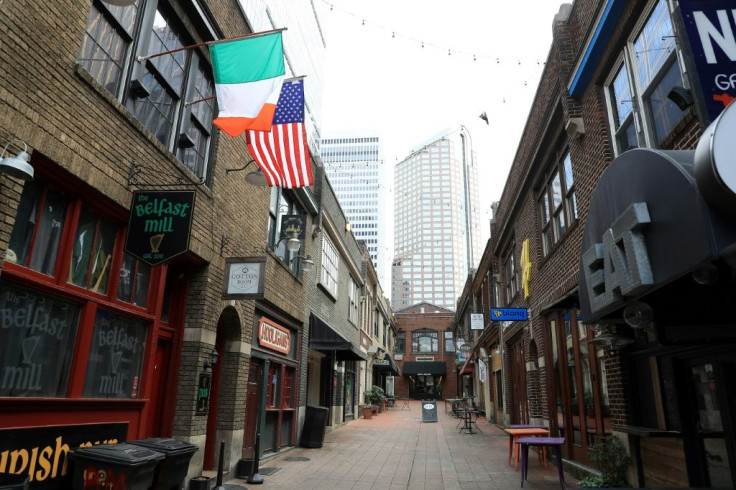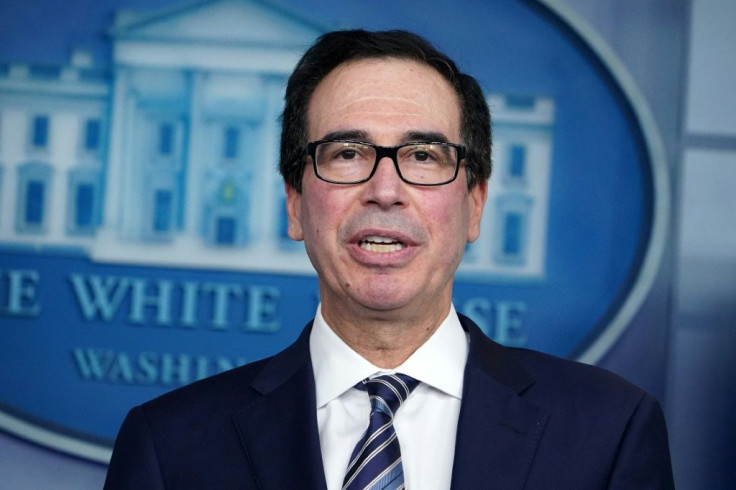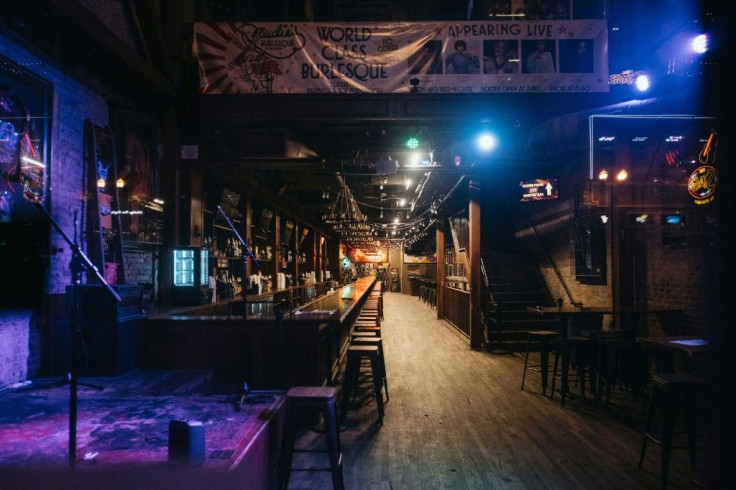Need Overwhelms Giant Loan Program For US Small Businesses
A week after its launch, a giant federal lending program to support small businesses devastated by coronavirus shutdowns is still struggling to completely get off the ground.
Officials in President Donald Trump's administration and large banks have pointed to impressive early loan figures from the $350 billion Paycheck Protection Program (PPP).
But while important sums have indeed reached some companies in need, other small businesses have been unable to apply for loans, as computer problems dog Washington officials and large banks prioritize some clients over others.
Some hard-hit firms have criticized the design of the program, which assumes a fairly quick economic bounce back that may be unrealistic in regions where the coronavirus outbreak has been severe.
"We don't know of anyone who has received funding yet," said Mavis Early, executive director of the Greater New Orleans Hotel & Lodging Association.

Jim Friedlander, chief executive at Arrangements Abroad, which organizes vacations, said his banks are processing some PPP loans, but have told him they are not ready for him to apply.
"I'm watching all this money disappear to other people, and I'm worried that there will be nothing left for us," he said.
The PPP program was included in the $2.2 trillion US relief law enacted in March after government-imposed shutdowns to combat the coronavirus shuttered countless stores, restaurants, cafes and hotels.
Businesses with fewer than 500 employees can apply for the loans, which cover eight weeks of payroll or rent and convert to grants if companies maintain their employees or rehire laid-off workers by June 30.

As of Thursday morning, the Small Business Administration (SBA), which is guaranteeing the loans from private lenders, had received more than 450,000 applications and approved loans for nearly $118 billion, an agency spokeswoman said.
That's impressive considering that in all of 2019, the agency approved 58,000 loans worth $28 billion, according to an annual report.
Treasury Secretary Steven Mnuchin told CNBC on Thursday that while banks "have been overwhelmed," they "will get to all" companies that need funds.
Mnuchin has asked Congress to provide another $250 billion for the program in the next round of federal stimulus.
Questions over big banks' willingness to step up arose this week after a senior SBA official in Nevada castigated banks that took federal bailout funds during the global financial crisis in 2008 for dragging their feet on PPP because of questions over paperwork.

But a big bottleneck has been the outgunned information technology system at SBA, which has sputtered repeatedly over the last week, freezing banks' loan officers out as they attempt to manually enter data.
When the SBA's E-tran system -- built for a much smaller volume -- functions properly, entering applicant data can take 10-15 minutes, a bank official said on condition of anonymity.
But the computer program has functioned only "intermittently" since the PPP was launched, the official said.
Jeanne Crain, chief executive of Bremer Bank in Minnesota, said despite the technical issues, the program's launch had gone well considering the scale of the mission.
The St. Paul-based lender has received 3,200 PPP applications and garnered approval for 1,200 applications worth $470 million in loans, Crain said. Bremer has already disbursed $118 million to clients in PPP funds.
"It's going pretty well based on a system that's being designed and built in real-time," Crain said. "The circumstances are extraordinary."
Large banks say they are moving as quickly as they can.
"To manage volume," Citi is accepting applications "in phases," a Citigroup spokesman said, adding that the bank has also "created a form on our website for clients to register their interest."
The Federal Reserve granted Wells Fargo a temporary exemption from an asset cap imposed on it in punishment for creating fake customer accounts to allow it to boost its PPP lending.
"We've gotten 170,000 expressions of interest and we're working to assist our customers through the PPP," a Wells Fargo spokesman said.
Aside from the information technology issues, some sectors have said the PPP is poorly designed for their needs.
Andrew Rigie, executive director at the New York City Hospitality Alliance, said requiring companies to staff up back to pre-crisis levels within two months was unrealistic.
"Restaurants and bars do not even know if they will be permitted to reopen in June, let alone be open long enough to know what our staffing levels will be," Rigie wrote in Forbes.
Rigie hopes Congress revises the program in the next round of legislation.
"The PPP needs to be amended... in order to give the hospitality industry support," he told AFP in an email. "We need grants, not loans and more debt."
© Copyright AFP 2024. All rights reserved.











